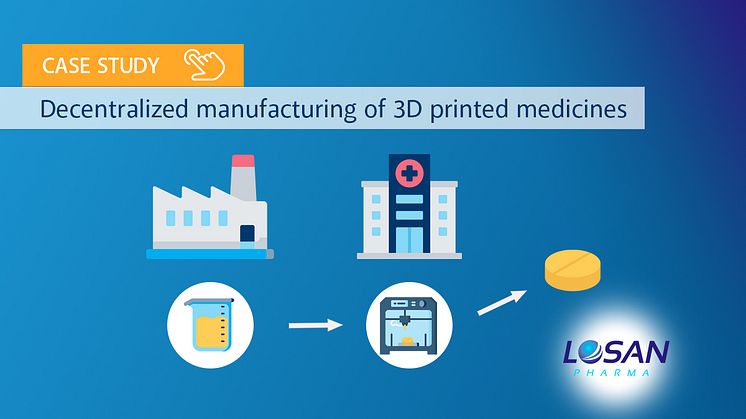
News -
A case study on decentralized manufacturing of 3D printed medicines
Personalized medicine
Three-dimensional (3D) printing possesses have the potential to bring personalized medicine closer to the patient by enabling drug manufacturing at the point-of-care. Small batches of printlets can be prepared on-demand with tailored drug doses, allowing pharmaceutical treatments to be delivered based on each patient's unique physiological and genetic makeup.
Pharma-ink
For printing personalized medicines at the point-of-care (e.g. in pharmacies or hospitals) intermediates are needed that can be stored. These intermediates can consist of filaments or simple granules and we called them pharma-inks.
Case study
In a case study together with FABRX, Losan Pharma has manufactured pharma-inks under cGMP and delivered to a simulated point-of-care. Efavirenz-loaded printlets were successfully fabricated using direct powder extrusion 3D printing. The drug content of printlets was quantified using an in-line NIR system. The developed NIR calibration models demonstrated excellent linearity and accuracy. This in-line dose verification system enables QC analysis to be performed immediately after fabrication, facilitating high throughput and real-time batch release in clinics in the future.
The study has been published in the International Journal of Pharmaceutics:
A case study on decentralized manufacturing of 3D printed medicines


